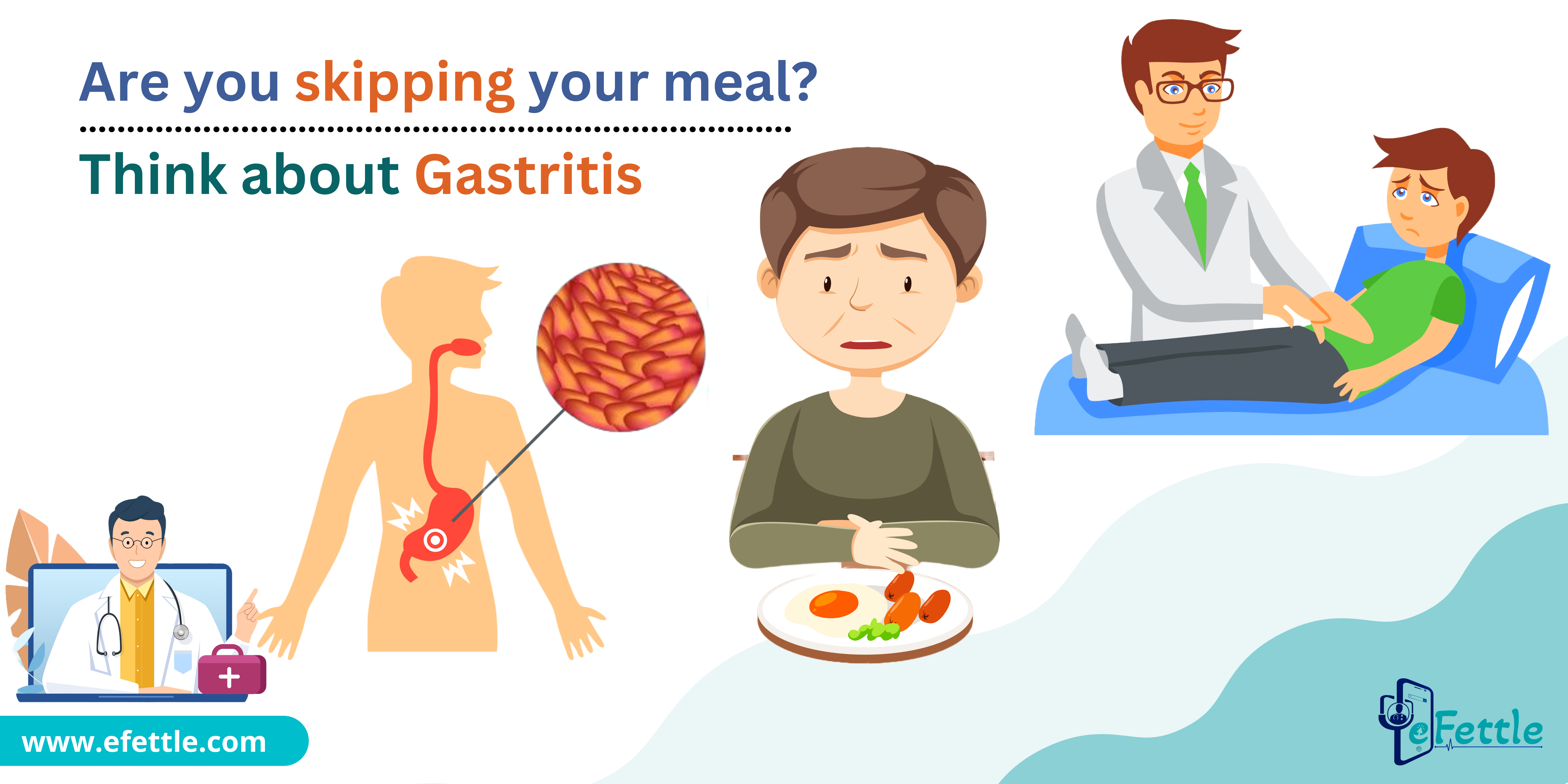

Are you skipping your meal? Think about Gastritis
Gastritis is a condition in which the lining of the stomach becomes inflamed, leading to symptoms such as abdominal pain, nausea, and heartburn. Skipping meals can play a role in the development and progression of gastritis, and understanding the connection between the two is important for proper management.
When you skip meals, your stomach may start producing more acid in anticipation of food, which can irritate the delicate lining of the stomach. Over time, this excess acid can cause inflammation, leading to gastritis. Skipping meals can also increase the risk of bacterial infections, such as those caused by H. pylori, which can further damage the stomach lining and exacerbate the symptoms of gastritis.
In addition, skipping meals can lead to changes in the way food moves through the digestive system, putting additional strain on the stomach and making it more difficult for the stomach to heal and recover from gastritis. Eating regularly and maintaining a balanced diet is important to prevent the development of gastritis and other digestive problems.
If you are experiencing symptoms of gastritis, it is important to consult with your doctor for a proper diagnosis and treatment plan. In addition, incorporating home remedies, such as eating a healthy diet that includes plenty of fruits and vegetables, avoiding irritant foods, drinking plenty of water, and practicing stress-reducing activities, can help alleviate symptoms and promote healing.
By understanding the connection between skipping meals and gastritis, and taking steps to maintain a healthy lifestyle and manage symptoms, it is possible to effectively treat and prevent this condition.
Gastritis is an inflammation of the lining of the stomach that can cause a variety of symptoms, including abdominal pain, nausea, and heartburn. There are many different factors that can contribute to the development of gastritis, including stress, poor diet, alcohol consumption, and certain medications.
One of the most common causes of gastritis is an infection with the bacteria Helicobacter pylori. This bacterium can damage the stomach lining, leading to inflammation and an increased risk of developing ulcers and other digestive problems.
In order to effectively manage gastritis, it is important to identify the underlying cause and address any contributing factors. This may involve making changes to your diet, reducing alcohol consumption, and reducing stress.
For those with H. pylori infection, treatment typically involves a combination of antibiotics and other medications to kill the bacteria and reduce inflammation. In some cases, surgery may be necessary to remove damaged tissue and repair the stomach lining.
There are also many home remedies that can help alleviate the symptoms of gastritis and promote healing. These include:
Eating a healthy, balanced diet that includes plenty of fruits, vegetables, and whole grains.
Avoiding foods that are known to irritate the stomach, such as spicy, fatty, or acidic foods.
Drinking plenty of water to help flush out toxins and keep the digestive system hydrated.
Practicing stress-reducing activities such as yoga, meditation, or deep breathing exercises.
Using natural remedies such as ginger, chamomile, or fennel tea to soothe the stomach and reduce inflammation.
Gastritis can be a painful and uncomfortable condition, but with proper management and a commitment to making healthy lifestyle changes, it can be effectively treated and managed. If you are experiencing symptoms of gastritis, it is important to consult with a doctor for a proper diagnosis and treatment plan.

How to lose Weight in healthy way
Achieving a healthy weight loss can be a journey, but by following ...
Read More

Are you suffering from Erectile dysfunction?
Erectile Dysfunction, commonly referred to as ED, is a sexual healt...
Read More

Retrograde ejaculation Dry ejaculate causes and how to manage?
Retrograde ejaculation is a condition in which semen goes into the ...
Read More